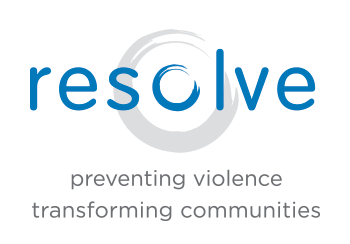“It Takes a Village…” – on Bystanders
The African proverb, “It takes a village to raise a child,” has become very popular in the United States in recent years. Similarly, it takes a community to stay safe. It requires that we look out for one another and one another’s children rather than say, “Oh, that’s the police’s job.” Or, “I’m sure they’re taking care of that at school.” Or, “I’m sure CYFD’s already been called” or, “It’s none of my business.”
To have a safe community requires that each of us act when we see or suspect an act of violence. It doesn’t, however, require that we jump into the middle of the fray. First of all, the risk of getting physically involved may be too great, and we may be unable to stay safe in our efforts to help. Also, there might be an even better tool to use, like getting a person of authority involved.
In order to be able to care for others, we must first care for ourselves. Have you ever listened when the flight attendant explains oxygen mask protocol? First you should secure your own mask before helping a child or another person with his/hers. The reason is very practical: if you stop breathing, you will not be much help to that other person. And, of course, after securing our own masks, we would all certainly help that other person.
The same is true for other safety issues. If we can ensure our own safety, why wouldn’t we help when we saw an act of violence; whether it seemed to be an assailant against a stranger, a husband against his wife, or a parent against a child?
At IMPACT, we teach that personal safety is about assessing the situation as well as the tools that we have to be safe. The same is useful for community safety. Maybe my best tool is my cell phone and calling 911 when I hear shouting and glass breaking in the apartment next door. Maybe my brother’s best tool when seeing a guy trying to take a drunk woman home is to offer her a ride home himself and to tell the guy it’s not going to happen.
As a small woman, am I going to be the best person to break up a fight between two guys in a parking lot? Probably not. I teach self-defense; I can keep myself safe. So, why not? Just as assailants target their intended victims in different ways based on how they perceive them, if I intervene when I see someone being threatened or assaulted, how I’m perceived is also going to play a role in how effective I am.
We all have to assess our best tools. Anyone who tells you that there is a set formula for dealing with these difficult issues is not acknowledging their complexity. There are many ways of helping out and staying safe. It might look different for different people with different skills. It’s not to say that one way is right and one is wrong. It’s about determining what tools we have in different situations.
It takes all of us to keep our communities safe.
The way I as a small woman who teaches violence prevention and self-defense interacts with a situation will be different than a large man with no formal training.
However, just as when keeping ourselves safe, we have to decide: What is going on? What tools do I have to best handle the situation?
It is our responsibility to help when another person’s wellbeing is at stake. However, that doesn’t mean jumping into the middle of the fray. Believing that we have to tackle someone to keep them safe is the same simple mistake that people make when they assume that “personal safety” and “self-defense” only address physical skills.
It’s true – any decision we make around safety is a calculated risk. At IMPACT, we talk about assessing the situation as well as the tools that we have. So, if I witness a scenario where two men are fighting outside of a bar and one draws a knife- am I going to jump in there? No! My best tool for that scenario is my cell phone. Now, if I see children getting into trouble in my neighborhood, what is my best tool?
